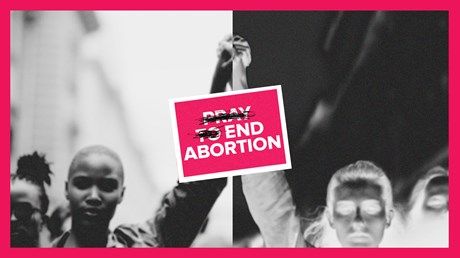They’re Not Religious. But They Oppose Abortion.
“Nones” take a more prominent place in the pro-life movement.

Monica Snyder gave up her childhood faith. But she never stopped being pro-life.
She opposes abortion for different reasons than her Catholic parents. Snyder doesn’t believe fetuses are made in the image of God. She doesn’t think they have eternal souls. Though her arguments differ, as an atheist with a master’s degree in forensic science from the University of California, Davis, her conclusions are the same: Human life begins with the zygote, and abortion is almost always wrong.
“Pro-choice people act as if they are morally neutral,” she said. “But abortion is not amoral.”
The executive director of Secular Pro-Life is one of a growing number of nonreligious people joining the pro-life cause. Historically, the pro-life movement has been almost exclusively religious, predominantly made up of Catholics and evangelicals. Nonreligious people—including the rising number of younger Americans who tell pollsters “none” when asked about their religious preference—generally defend a woman’s right to terminate a pregnancy.
But a 2022 Gallup poll found that 21 percent of the nones say abortion is morally wrong.
And as the pro-life movement celebrated the Supreme Court ruling overturning Roe v. Wade in June and then scrambled to fight abortion in 50 states, religious activists are increasingly finding themselves working side by side with secular allies. They welcome the support.
“The fact that these nonreligious groups are really coming alongside faith-based organizations is really significant and makes a powerful statement about where the movement is right now,” said Diane Ferraro, chief executive officer of Save the Storks, a Christian nonprofit that partners …
